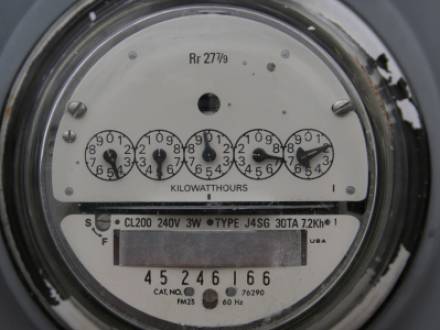Power, Gas, and Water Theft: Illinois Law Explained
 When most of us think of theft, we think of physical property or money being taken. However, in the state of Illinois, theft of utilities like electricity, gas, and water can result in misdemeanor or even felony charges under 720 ILCS 5/16-14. Anyone who diverts or tampers with a utility meter, or uses electricity, gas, or water without authorization, commits theft of services.
When most of us think of theft, we think of physical property or money being taken. However, in the state of Illinois, theft of utilities like electricity, gas, and water can result in misdemeanor or even felony charges under 720 ILCS 5/16-14. Anyone who diverts or tampers with a utility meter, or uses electricity, gas, or water without authorization, commits theft of services.
An increasing number of utility companies are utilizing smart-meter data and digital evidence to identify any irregularities in usage. In some cases, the issue is nothing more than a faulty meter or a billing dispute. In other cases, the problem is intentional bypass, resulting in theft of services.
If you are facing charges of utility theft, it is essential that you understand how the state defines and punishes this criminal offense. Your first step should always be to consult with a Chicago, IL criminal defense lawyer who can examine the evidence and build a solid defense on your behalf.
What Must the State Prove to Achieve a Theft of Utility Conviction?
Since utility theft in Illinois includes using, diverting, or tampering with a meter, line, or device that provides water, electricity, telephone, cable, broadband, or gas, the state must prove the following elements:
- The defendant altered equipment or connected to services without authorization.
- The defendant intended to avoid payment for utility services or reduce the consumption rate.
- There was a benefit received from the utility theft.
How is Utility Theft Achieved and Detected?
An individual may install "jumpers" or bypass wires around a meter to show a reduced consumption, or reverse meters to reduce readings. In some cases, smart-meter firmware is tampered with, or an individual reconnects his or her service following a disconnection for non-payment. A person may also illegally connect to a utility service themselves rather than having the utility company perform that service to avoid getting billed.
Before power-usage analytics and digital monitoring systems, it was much easier to avoid detection for utility theft. Today, these high-tech systems can send information related to utility theft to the utility company, quickly identifying any abnormal flow. In other cases, technician or photographic evidence of broken seals can indicate utility theft.
Smart-meter rollouts across the nation allow precise consumption comparisons, and there is increased cooperation between utilities, local prosecutors, and cybercrime units. Illinois currently has a legislative push to add renewable-energy theft (solar net-metering fraud) to the statute.
What Are the Classifications and Penalties for Utility Theft in Illinois
If the value of the utility theft is under $500, the crime is charged as a Class A misdemeanor in Illinois. If the value of the utility theft is from $500 to $10,000, the crime is charged as a Class 3 felony, with the potential of two to five years in prison. When the value of utility theft is above $10,000, the crime is charged as a Class 2 felony, with the potential of three to seven years in prison. Courts may also require repayment of the estimated service value stolen.
Common Defenses to Utility Theft Charges
While every case is different, and the defense will depend on the specific facts and circumstances, some of the most common defenses for these charges include:
- There was a lack of intent, including equipment errors or billing errors
- The utility company failed to properly install, maintain, or inspect the meter.
- There was no exclusive access due to shared lines or communal meters.
- Smart-meter data does not definitively establish who tampered with a device.
Contact a Rolling Meadows, IL Theft Lawyer
If you are being investigated or charged with utility theft, it is important to act quickly before a small discrepancy escalates into felony charges. A highly skilled Chicago, IL criminal defense attorney from Hartsfield Law can challenge the evidence, identify maintenance errors, and protect you from a conviction that could follow you for life.
Attorney Hartsfield’s diverse background includes experience in the Will County Public Defender’s Office, teaching as an educator for the City Colleges of Chicago, and instructing pre-trial detainees at the Cook County Department of Corrections. Call 312-345-1700 to schedule your free consultation.













 312-345-1700
312-345-1700



